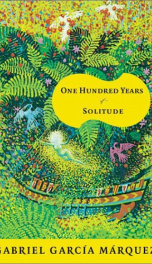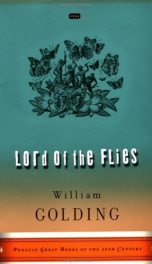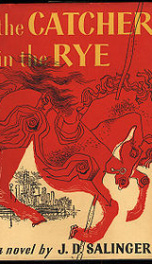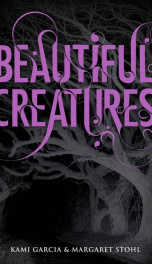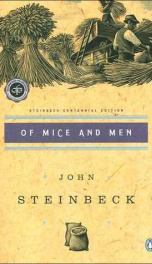Dostoyevsky Fyodor

Constance Clara Garnett (née Black) (19 December 1861, Brighton, England — 17 December 1946, The Cearne) was an English translator of nineteenth-century Russian Literature. Garnett was one of the first English translators of Tolstoy, Dostoevsky and Chekhov and introduced them on a wide basis to the English and American public. Garnett was the sixth of the eight children of the solicitor David Black (1817–1892), afterwards town clerk and coroner, and his wife, Clara Maria Patten (1825–1875). Her brother was the mathematician Arthur Black.[1]. Her father became paralysed in 1873, and two years later her mother died, from a heart attack after lifting him from his chair to his bed.[1] She was initially educated at Brighton and Hove High School. Afterwards she studied Latin and Greek at Newnham College, Cambridge on a government scholarship, where she also learned Russian (partly from émigré Russian friends such as Felix Volkonsky [Rubenstein]), and worked briefly as a school teacher. Her husband, Edward Garnett, whom she married in Brighton on 31 August 1889, was a distinguished reader for the publisher Jonathan Cape. Her son and only child, David Garnett, trained as a biologist and later wrote novels. In 1893, shortly after a visit to Moscow, Saint Petersburg and Yasnaya Polyana where she met Leo Tolstoy, she was inspired to start translating Russian literature, which became her life's passion and resulted in English-language versions of dozens of volumes by Tolstoy, Gogol, Ivan Goncharov, Dostoevsky, Pushkin, Turgenev, Ostrovsky and Chekhov. The Russian anarchist Sergei Stepniak partly assisted her, also in revising some of her early works. By the late 1920s, Garnett was frail, white-haired, and half-blind. She retired from translating after the publication in 1934 of Three Plays by Turgenev. After her husband's death in 1937, she became quite reclusive. She developed a heart condition, with attendant breathlessness, and in her last years had to walk with crutches. Constance Garnett translated 71 volumes of Russian literary works, and her translations received high acclaim, from authors such as Joseph Conrad and D. H. Lawrence. Despite some complaints about being outdated, her translations are still being reprinted today (most also happen to be in the public domain). However, Garnett also has had many critics, notably prominent Russian natives and authors Vladimir Nabokov and Joseph Brodsky. Brodsky notably criticized Garnett for blurring the distinctive authorial voices of different Russian authors[1]: "The reason English-speaking readers can barely tell the difference between Tolstoy and Dostoevsky is that they aren't reading the prose of either one. They're reading Constance Garnett." In her translations, she worked quickly, and smoothed over certain small portions for "readability", particularly in her translations of Dostoevsky.[2] In instances where she did not understand a word or phrase, she omitted that portion.[1][3] For his Norton Critical Edition of The Brothers Karamazov, Ralph Matlaw based his revised version on her translation.[4] This is the basis for the influential A Karamazov Companion by Victor Terras.[5] Matlaw published an earlier revision of Garnett's translation of the Grand Inquisitor chapter in a volume paired with Notes From Underground.[6] In 1994 Donald Rayfield compared Garnett's translations with the most recent scholarly versions of Chekhov's stories and concluded: "While she makes elementary blunders, her care in unravelling difficult syntactical knots and her research on the right terms for Chekhov's many plants, birds and fish are impressive.... Her English is not only nearly contemporaneous to Chekhov's, it is often comparable."[7] Later translators such as Rosemary Edmonds and David Magarshack continued to use Garnett's translations as models for their own work.[3][8]
do you like this author?
What readers are saying
What do you think? Write your own comment on this book!
write a commentWhat readers are saying
What do you think? Write your own comment on this author!
write a commentBook list

The House of the Dead or Prison Life in Siberia
with an introduction by Julius Bramont
Series:
Unknown
Year:
Unknown
Raiting:
4.5/5
Show more
add to favoritesadd In favorites
Book list

The House of the Dead or Prison Life in Siberia
with an introduction by Julius Bramont
Series:
Unknown
Year:
Unknown
Raiting:
4.5/5
Show more
add to favoritesadd In favorites

White Nights and Other StoriesThe Novels of Fyodor Dostoevsky,Volume X
Series:
Unknown
Year:
Unknown
Raiting:
3.5/5
Show more
add to favoritesadd In favorites
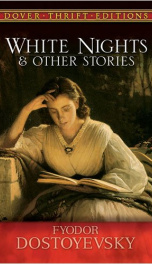
white nights and other stories
Series:
Unknown
Year:
Unknown
Raiting:
3.5/5
By Fyodor Mikhaylovich Dostoyevsky, a Russian writer and essayist, known for his novels “Crime and Punishment” and “The Brothers Karamazov”. “White Nights” tells a story of a lonely man, whose happiness never came about. Romantic and sentimental feeling lies at the heart of the plot, though the story touches upon the tragic life and relations of the heroine. It became one of the brightest and poetic works of the author, who devoted many of his work to meditations of the life of the humble and suffering. Here we see the protagonist’s dissatisfaction with the real life, and as the result, an attempt to hide from daily miserable routine in the ideal dreamy world.
Show more
add to favoritesadd In favorites

the new england gazetteer comprising a concise description of the cities town
Series:
Unknown
Year:
Unknown
Raiting:
4/5
Show more
add to favoritesadd In favorites

the boston almanac and business directory for the year
Series:
Unknown
Year:
Unknown
Raiting:
4/5
Show more
add to favoritesadd In favorites

letters of fyodor michailovitch dostoyevsky to his family and friends
Series:
Unknown
Year:
Unknown
Raiting:
5/5
Show more
add to favoritesadd In favorites

letters of fyodor michailovitch dostoevsky to his family and friends
Series:
Unknown
Year:
Unknown
Raiting:
5/5
Show more
add to favoritesadd In favorites
What readers are saying
What do you think? Write your own comment on this author!
write a commentGenre
- Books
- Books / Children's Books / History & Historical Fiction
- Nonfiction / Politics / General
- Literature & Fiction / Classics
- Entertainment / Humor / General
- Books / Atheism
- Nonfiction / Education / Education Theory / History
- Books / Conduct of life
- Business & Investing / Economics / Economic Conditions
- Nonfiction / Crime & Criminals / Criminology
if you like Dostoyevsky Fyodor try:

James Henry
(Author)

Tolstoy, Leo, graf, 1828-1910
(Author)

Michael Crichton
(Author)

Phillip Pullma
(Author)

Alice Sebold
(Author)

Crichton, Michael, 1942-
(Author)
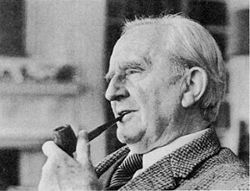
John Ronald Reuel Tolkien
(Author)

Guy Gavriel Kay
(Author)

Eoin Colfer
(Author)

Dan Simmons
(Author)

Roald Dahl
(Author)

Robert A Heinlein
(Author)

Terry Pratchett
(Author)

Kurt Vonnegut
(Author)

Gabriel Garcia Marquez
(Author)

Robert Jordan
(Author)

John Steinbeck
(Author)

Robert Ludlum
(Author)

Michael Moorcock
(Author)

China Mieville
(Author)

Eoin Colfer
(Author)
readers also enjoyed
What readers are saying
What do you think? Write your own comment on this author!
write a commentGenre
- Books
- Books / Children's Books / History & Historical Fiction
- Nonfiction / Politics / General
- Literature & Fiction / Classics
- Entertainment / Humor / General
- Books / Atheism
- Nonfiction / Education / Education Theory / History
- Books / Conduct of life
- Business & Investing / Economics / Economic Conditions
- Nonfiction / Crime & Criminals / Criminology
if you like Dostoyevsky Fyodor try:
readers also enjoyed
Do you want to read a book that interests you? It’s EASY!
Create an account and send a request for reading to other users on the Webpage of the book!
